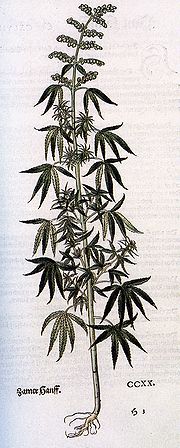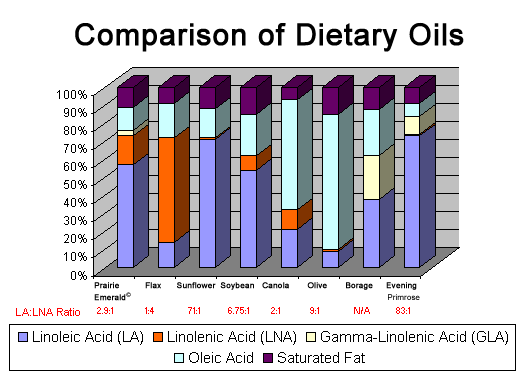About Hemp
Hemp has been called the perfect plant. Hemp seed oil contains what is considered to be an ideal ratio of Omega 6 and Omega 3 fatty acids- 3:1, perfectly matching the needs of the human body. In addition to the EFAs hemp seed provides, it is also one of the richest sources of amino acids. Along with the EFAs, these two components are responsible for keratin formation, the primary protein that gives your hair structural integrity.
Hemp is quite simply, nature's health and beauty secret - and the secret is in the seed. Hemp seed oil and extract offer many benefits useful in personal care products. The reason hemp is so effective is largely because of the essential fatty acids (EFAs) it contains. More than 75% of the EFAs in hemp seed oil are poly-unsaturated fatty acids (PUFAs), known for their excellent emollient and lubricating properties.
 Facts on hemp
Facts on hemp
The hulled hempseed does not contain any Tetrahydrocannabinol (THC). (THC is normally stored in the fleshy parts of the plant, especially the leaves. None is contained in the seeds, flowers, or roots of the plant.)
Hemp seed can be processed, much like soy, into many nutritious foods and cosmetic ingredients. Hemp seed is far more nutritious than even soybean oil and though it contains less total protein, it is far more digestible to humans.
Hemp seed contains, on average: 25% protein, 30% carbohydrates, 15% insoluble fibre, 30% oil, the nutrients carotene, phosphorous, potassium, magnesium, sulphur, calcium, iron, zinc, and the vitamins E, C, B1, B2, B3, and B6. Hemp seed also is one of the few seeds to contain Omega-6 and Omega-3 Linoleic acid, commonly found in fish and useful to the immune system.
Hemp oil has been found to be a highly nutritious, essential hair and skin aid for protection, growth and anti-aging.
Hemp has excellent healing and moisturising properties.
Because of its EFA profile, hemp seed oil instantly counteracts the effects of degreasing and dehydration, conditions that produce dry skin and hair.
In addition to improving the structural quality of the hair, hemp seed oil's high lipid content helps increase elasticity, volume, combability and shine. Hemp is used as fibre for rope, twine, tough cloth, and paper as well as other products where wood pulp is currently used.
Hemp could help preserve natural resources. For instance, hemp used for paper would replenish itself in 90 days instead of the 20-40 years required to grow trees. An acre of hemp can produce 4 times the amount of paper that an acre of trees can produce.
Hemp requires no herbicides or pesticides for cultivation and refertilises soil naturally making the ground useful for future crops.
History of hemp
Hemp has been in continual use by human civilization for at least 10,000 years. The first written record of cannabis was supposedly penned by one of the early Chinese emperors around 2700 B.C. Islamic/Arabic empires created Europe's first paper mill utilizing hemp in about 1150 A.D. In 1563 A.D., as part of the economic and military build-up of the time (80 years war), Queen Elizabeth I orders all land owners with 60 acres or more to grow Cannabis or face a £5 fine.
For centuries the fibre of the hemp plant has been used for rope, sails and other textiles. Early drafts of The Declaration of Independence and The Constitution were written on hemp paper.
George Washington and Thomas Jefferson both farmed hemp crops – the colonists were legally bound to grow hemp as one of their crops and could use hemp to pay their taxes. During times of shortage, farmers were sent to jail for not growing hemp.
In 1941 Popular Mechanics introduced Henry Ford's new plastic car, manufactured from and fuelled by hemp (an early bio diesel variant). Hoping to break the petroleum industries' monopoly of control on his company, Ford illegally grew hemp for over a year.
 The 1942 Japanese invasion of the Philippines cut off the US supply of Manila hemp, among other vital resources. The US government distributed over 400,000 pounds of hempseed to farmers in order to limit the supply gap as much as possible, subsidizing hemp cultivation during WWII. American farmers grew about a million acres as part of that program.
The 1942 Japanese invasion of the Philippines cut off the US supply of Manila hemp, among other vital resources. The US government distributed over 400,000 pounds of hempseed to farmers in order to limit the supply gap as much as possible, subsidizing hemp cultivation during WWII. American farmers grew about a million acres as part of that program.
In New Zealand hemp businesses began to appear, in more recent times, during the early to mid 1990s. Hemp product availability has continued to grow ever since.
By 2004, a few U.S. states had again legalised production of industrial hemp and this continues to grow. In 2005, for the first time a New Zealand hemp seed oil was available in health stores and outlets. Last year, a successful venture by two Canterbury businesses culminated, in March of 2006 with the first harvest of Hemp on a commercial scale in New Zealand. The crop was grown spray free and required very little irrigation.
Hemp seed oil is considered to be the most nutritional of all oils available. It has a plethora of medicinal, nutritional, and cosmetic uses, making it a wonderful multi-purpose ingredient. It has been used for many years medicinally, and was even used during Ming Dynasty by the Chinese under the name of Ma Zi.
Hemp seed oil provides the body with complete protein, nutrition, and with all the essential amino acids necessary for health and wellness.
Medicinal and cosmetic use
Hemp seed oil is a highly nutritious food, and contains antioxidants, protein, carotene, phytosterols, phospholipids, as well as a number of minerals including calcium, magnesium, sulfur, potassium, iron, zinc, and phosphorus. It is a source of complete protein and contains all 20 known amino acids, including the nine essential amino acids. It also contains Vitamins A, B1, B2, B3, B6, C, D, and E. The green color in hemp seed oil is a result of the high level of chlorophyll which is naturally present in the seeds.
Perhaps the most valued property of hemp seed oil is its percentage of essential fatty acids, which is higher than any other plant in the world. It contains both Omega-6 and Omega-3 essential fatty acids, in a proportion of 3:1. This proportion is the recommended balance of Omega-6 to Omega-3 acids, making it a simple perfect way to complete your diet.
Essential fatty acids are necessary for our health, and are responsible for the lustre in our skin, hair, eyes, transferring oxygen to every cell in our body, and even the clarity in our thought processes. They also lubricate and clear the arteries, strengthen the immune system, and help prevent viruses and other threats to our immune system. Essential fatty acids are not produced by the human body. Instead, they must be obtained from food sources.
Specifically, hemp seed oil has been shown to assist with the following medical conditions:
• Eczema
• Psoriasis
• Acne
• Osteoporosis
• Menopause
• Cancer
• Multiple sclerosis
• Rheumatoid arthritis
• Premenstrual symptoms
• High cholesterol
• High blood pressure
• Weight loss
• Poor circulation
• Crohn's disease
• Cardiovascular disease
• Gall stones
• Kidney degeneration
• Dry skin
• Immune deficiency
• Irregular hormone levels
• HIV virus
• Tuberculosis
• Low energy levels
• Low metabolism
• Dry skin and hair conditions

In cosmetic and body-care products, hemp seed oil is anti-inflammatory, anti-ageing, balances dry skin, fights skin inflammations, helps heal skin lesions, has antioxidants, and contains moisture balancing properties. The oil is non-greasy, readily absorbs into the pores, is an emollient, and has rejuvenating and moisturising properties for the skin. Adult users of hemp seed oil have reported softer skin, and stronger nails and hair after only a few weeks of using 1-2 tablespoons per day. The vitamins and minerals present in hemp- seed oil are easily absorbed through the skin, resulting in a more vitamin and mineral-enriched body-care product.
Usage instructions
The pleasantly nutty taste of hemp seed oil makes it easy to incorporate into your culinary recipes. In one tablespoon, you will receive 2.5 grams of Omega-3 fatty acids, 8 grams of Omega-6 fatty acids, and 2 grams of Omega-9 fatty acids - a perfect balance. No other single source oil has this ideal combination of essential fatty acids. Hemp seed oil is easily digestible in its raw state. It contains less than 10% saturated fats, and 70-80% polyunsaturated fatty acids, the highest of any vegetable oil . This is an unusually high level of the good oils, making this oil beneficial for culinary use. In culinary use, the oil will not clog arteries, as do saturated and trans fatty acids or shortenings.
This oil should not be fried, and should preferably be used cold. It may easily be added to salad dressings, pasta, vegetables, smoothies, soups, sauces, hummus, guacamole, pesto, or other foods after the heating/baking has been completed. If you must heat the oil, it may be gently heated for a short period of time.
Unlike flaxseed oil, hempseed oil can be used continuously without developing a deficiency or other imbalance of EFAs. This has been demonstrated in a clinical study, where the daily ingestion of flaxseed oil decreased the endogenous production of GLA.
Hemp seed oil may be added to any body-care or cosmetic product, including creams, lotions, facial or body oils, massage oils, shampoo, conditioner, shaving products, lip balm, soap, and any other product. In hair care products, it increases elasticity, manageability, and shine.
Recent Canadian research has shown this oil to possibly be effective as a broad-spectrum ultraviolet skin sunscreen.